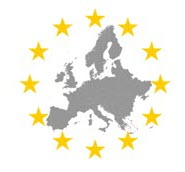Introducing a new citizens initiative for carbon pricing in Europe
Posted on 22 May 2019 by BaerbelW
A new European Citizens’ Initiative (ECI) called “The fast, fair and effective solution to climate change” was launched on May 6. The proposal asks that the European Commission introduce a carbon-pricing policy known as Carbon Fee and Dividend at the European Union level. The European Commission registered the proposal earlier this month.
Organizers behind the initiative now have one year until May 6, 2020 to gather the 1 million signatures needed for the European Commission to consider the proposal.
Scientists and economists agree: Putting an increasing price on pollution and giving the returns to households works. A steadily increasing price on fossil fuels will reduce pollution by leading companies and consumers to choose cleaner, cheaper options. All money collected would be returned fairly and for example every month to citizens as a dividend. Most low- and middle-income families will be better off by this policy.

The European Citizens' Initiative is a democratic instrument that enables every European citizen to shape policy by submitting a legislative proposal. If at least one million signatures are collected for a citizens' initiative, the Commission has to examine the proposal and indicate the steps it will take.
"We're at a turning point in history," says Brigitte Van Gerven, spokesperson for the Initiative. "After years of apathy for the climate problem, people have awakened, thanks to the actions of Greta Thunberg and the climate strikers. The challenge now is to convert this energy into a strong and ambitious climate policy."
As a policy to reduce greenhouse gas emissions, Carbon Fee and Dividend was implemented earlier this year in Canada, where citizens have already received their “Climate Action Incentive” checks. In the United States, carbon-fee-and-dividend legislation has been introduced by members of both parties as the Energy Innovation and Carbon Dividend Act.
The policy is a concrete, realistic and financially feasible policy that is budget neutral for the government. Moreover, it is socially just, since it is not a tax increase, but a green tax shift - a redistribution from those who pollute a lot to those who pollute less.
Carbon Fee
 This policy puts a fee on fossil fuels like coal, oil, and gas. It starts low, and grows steadily over time. This will drive down carbon pollution because companies, industries, the public sector and consumers will move toward cleaner, cheaper options. The carbon fee is based on the economic principle that if you want less of something you increase the price. Learn more about the Carbon Fee here.
This policy puts a fee on fossil fuels like coal, oil, and gas. It starts low, and grows steadily over time. This will drive down carbon pollution because companies, industries, the public sector and consumers will move toward cleaner, cheaper options. The carbon fee is based on the economic principle that if you want less of something you increase the price. Learn more about the Carbon Fee here.
Carbon Dividend
 The money collected from the carbon fee is returned every month to citizens to spend as they see fit. Program administrative costs are paid from the fees collected. Governments do not keep any of the money from the carbon fee. The dividend is designed to keep the economy in balance, protect the vulnerable and secure the long term public support needed to address climate change. Learn more about the Carbon Dividend here.
The money collected from the carbon fee is returned every month to citizens to spend as they see fit. Program administrative costs are paid from the fees collected. Governments do not keep any of the money from the carbon fee. The dividend is designed to keep the economy in balance, protect the vulnerable and secure the long term public support needed to address climate change. Learn more about the Carbon Dividend here.
Border Carbon Adjustments
 Border Carbon Adjustments protect EU manufacturers and jobs from unfair international competition that lacks a carbon price. Imported goods will pay a border carbon adjustment, and goods exported from the EU will receive a refund under this policy. The Border Carbon Adjustment (BCA) is designed to address two key challenges: protecting EU industry from unfair competition and promoting wider adoption of effective carbon pricing. Learn more about Border Carbon Adjustments here.
Border Carbon Adjustments protect EU manufacturers and jobs from unfair international competition that lacks a carbon price. Imported goods will pay a border carbon adjustment, and goods exported from the EU will receive a refund under this policy. The Border Carbon Adjustment (BCA) is designed to address two key challenges: protecting EU industry from unfair competition and promoting wider adoption of effective carbon pricing. Learn more about Border Carbon Adjustments here.
For more information and references, please check out the details provided in this PDF.
So, if you are a citizen of a European Union member state and if you'd like to get carbon fee and dividend implemented across Europe, please consider signing the ECI here. And then tell others about it!
About the initiative's organisers
The ECI for a fast, fair and effective solution to climate change is being organised by a committee of Citizens's Climate Lobby (CCL) members in Europe. The author of this blog post is active in the German chapter of CCL where it's known as Bürgerlobby Klimaschutz. She also fulfills the role of volunteer regional coordinator for Europe. To learn more about CCL, please check out the earlier post "Pushing for a price on carbon globally"































 Arguments
Arguments































I serioulsy doubt that a carbon fee of 120$ /ton CO2 to implement until 2030 (in 10 years) will matter much for the climate emergency we are facing and the consequent energy revolution we need. And it is not true that all scientists agree with it as the best way to go forward.
#1 True, Jose; the fee and dividend proposal is primarily a financial signal for manufacturers and consumers to transition from fossil fuel dependent technologies, transportation and housing options to low carbon, using the marketplace for folks to acquire low carbon options. It does not preclude top-down research, innovation, regulations and subsidies to speed up the process; indeed it is quite compatible with those strategies. It's not either-or, rather all-of-the-above is most likely going to be needed. But it seems to me to be a very valuable tool to help move things along.
Animal agriculture is a bigger contributor to GGEs than fossil fuels, so without significant reductions of GGEs in that sector, we are wasting time
This is excellent news. Giving the markets, manufacturers and consumers a 'financial signal' is a very powerful thing to achieve change efficiently and quickly. Extending the carbon fee/dividend concept to other areas such as general pollution, habitat degradation, resource exhaustion etc can harness the enormous power of the free market to fix things rather than wreck them! There are fields of economics which address these areas - environmental/ecological/full cost economics which include the 'externalities' mentioned on the financial bottom lines of corporations.
Briefly: dirty, polluting, damaging or resource hungry methods, and the items and services they create, get made more expensive to use than cleaner, greener methods which become cheaper and more affordable.
Strong legislation is not needed - people will always choose the cheaper option...
Economically, because these techniques do not remove money from the economy, they are neutral but as many lower income people and environmentally conscious people use fewer materials and energy than the more profligate, the 'fees' they pay can often be less than the dividends they receive back. They receive an income. The system acts as a form of redistribution of capital from the wasteful to the responsibly frugal.
en.wikipedia.org/wiki/Environmental_economics
BTW, the initiative has only got 2512 sigatures on it so far, including mine
The mere fact that this is under discussion is solid progress.
It almost goes without saying that there'll be a lot of waffling, inefficiency, misdirection, groping for blinkers, cowardice and other human behaviors on display. Even more time lost in that process, and of course it's not a perfect solution in any case.
But meanwhile consitutents will gain familiarity with all of the reasoning behind the effort. That's a win, regardless of whether this particular attempt succeeds or fails.
We could wish that we acted better in concert but there are unattactive possibilities there as well, as we've seen. Bumbling and flailing is our modus operandi for worse and better. Let's hope there's time for SOP to work.
@3 Swampfox,
Livestock production has about a 5.4% +/- of total carbon emissions footprint.
World Greenhouse Gas Emissions in 2005
That paper is a little old, but I like the graph on page two, as it explains the breakdown in easy to understand catagories.
As has been pointed out elsewhere on this sight, the claim that animal agriculture is the biggest Greenhouse Gas Emissions is completely false. It's just a propaganda ploy. Fossil fuels is the biggest issue because that is fossil carbon that wasn't part of the short term carbon cycles before we started using them in the industrial age.
I am sympathetic to your point however. While animal agriculture may be only about 5% of the cause, it could be changed to become at least 50% of the solution. This is because changing agriculture to regenerative carbon farming techniques average 5-20 tonnes CO2e/ha/yr.
Liquid carbon pathway unrecognised
However, it is important to get the facts correct and precise. The issue is too important to state incorrectly.
Carbon pricing is indeed good news. One thing thats interesting is some of these European countries have cap and trade schemes, so this new scheme seems almost like a tacit admission they haven't worked. I have certainly not been able to find evidence they have achieved much.
The problem is the existing cap and trade schemes have weak settings and are opaque processes between the corporates and governments hidden from public view, and so open to capture by the corporate sector. They are dangerous because the public probably assume they are fixing the climate problem when they are not.
Carbon fee and dividend schemes seem more transparent and in the public mind, and will be more obvious in their impacts. The settings can be ramped up over time.
What RedBaron said, but 2018 picture. Energy transport beats agriculture hands down.
The low carbon lifestyle, (no animal flesh, lots of local vegetables, and biking around) is a lot healthier (and cheaper) for you. This should provide incentives enough for citizens to switch. Had my cholesterol checked the other day and it was 120 and I am no longer obese. If all citizens followed my lead, we would put 90% of all cardiologists out of business. Heart disease and diabetes would effectively end as scourges to humanity.
And as a side benefit, I'd rake in the dough from this sort of revenue-neutral carbon tax.
@10 cpske,
The even lower low carbon lifestyle, (only pasture raised animal products, lots of local vegetables, and biking around) is even more healthy for you.
This could provide incentives enough for citizens to switch. But if the dividend were paid to farmers for verified tonnage of carbon sequestered yearly in soils, food would be even cheaper and the reduction of greenhouse gasses from the atmosphere several orders of magnitude faster.
This is the folly of a emissions only approach.
Meanwhile biology can remove that CO2 much much faster. In fact at the astonishing rate of 5-20 tonnes CO2e/ha/yr if it includes the unique symbiosis between mycorrhizal fungi, perennial grasses, and the vast herds of herbivores that evolved on them.
You don't need to eat those herbivores since you are a Vegan. But they do have a biological function that includes the ecosystem service of soil creation and nutrient cycling... and yes that does also include removing excess CO2 from the atmosphere. So we do need them to heal the planet.
@2wilddouglascountry
The claim that animal agriculture causes more greenhouse gas emissions than fossil fuels is wildly inaccurate. The New York Times finds that "Worldwide, livestock accounts for between 14.5 percent and 18 percent of human-induced greenhouse gas emissions," with US livestock emissions only about half that amount. https://www.nytimes.com/2018/01/25/climate/cows-global-warming.html
Grazing livestock on open plains have been carbon neutral in the past because the methane they release breaks down to CO2 and is absorbed by natural sinks. My understanding is the problem is humans have increased the numbers ahead of what natural sinks can absorb, and those natural sinks including forests are disappearing. I stand to be corrected if someone posts links to better information.
I think the bottom line is we need to get livestock numbers down to a manageable level, and eat less meat, but getting rid of all livestock does not appear to make much sense, and thinking the whole world will become vegetarian looks unrealistic to me.
And we have also degraded soils with intensive poorly managed dairy and livestock farming, and some potential exists to increase the ability of soils to sequester carbon if livestock farming is done in particular ways. I hear what RB says.
nigel,
my understanding of the methane balance is that the main form of destruction is by UV and oxygen in the atmosphere , not in the soil.
The increase in methane in the last few years is from the east where paddy fields are probably the major contributor, not cattle and sheep belching. It is called marsh gas for a reason in that marshes (and paddy fields ) are a major source.
Nevertherless cattle pooing on the land is a natural way of mainaing fertility and I would be interested in finding if the carbon maintained and sequestered on pasture offset the methae imbalance.
Of interest the destruction of the vast herds of herbivores in the americas by the clovis event and then by the destruction of the bison in the 19th century have been attributed to blips in the climate record
A simpler way to involve companies and grassroots in global warming action is thru the profit motive. For instance, Climate Funds may set up 'green entrepreneurship' programs that bring together producers of ethanol in Brazil, USA and India to design small to medium scale ethanol distilleries for the tropics, using sweet sorghum as feedstock. The resultant schemes will attract entrepreneurs, co-ops and financiers in the tropics to set up the projects due to trust and feasibility, (producers can't go wrong) + Climate Funds' assistance, + profits above 50%. The profit motive, which largely polluted our planet, can also clean it up!